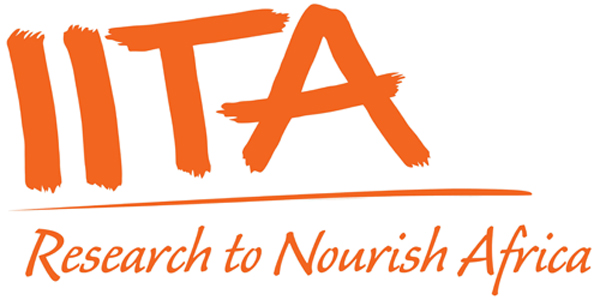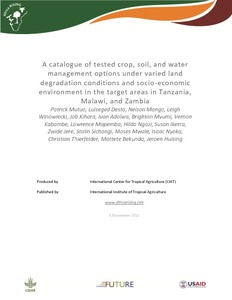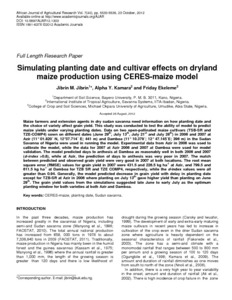Location
The International Institute of Tropical Agriculture (IITA) is a non-profit institution that generates agricultural innovations to meet Africa’s most pressing challenges of hunger, malnutrition, poverty, and natural resource degradation. Working with various partners across sub-Saharan Africa, we improve livelihoods, enhance food and nutrition security, increase employment, and preserve natural resource integrity.
“To offer leading research partnership that facilitates agricultural solutions to hunger, poverty, and natural resource degradation throughout sub-Saharan Africa.”
IITA’s mission is to assure food security for some of the world’s poorest people and provide them with viable strategies that create real, long-term results for economic development and community stability, while building an ecologically sound future that takes into account the issues of climate change. At IITA, we are dedicated to alleviating these problems and working to transform agriculture in Africa.
“The lead research partner facilitating agricultural solutions to overcome hunger and poverty in the tropics.”
IITA sees a bright future for Africa. We see a continent that can become a world leader in agriculture and sustainability. We understand that Africa needs a proactive CGIAR-supported Center that is closely linked to the demands of this continent. Our core beliefs and strategy reflect this.
In line with the new CGIAR, IITA is focused on four System-Level Outcomes described in the Strategic Results Framework.
IITA will advance these System Level Outcomes within five impact zones in sub-Saharan Africa by increasing major staple food yields in target R4D regions by two-thirds. Focusing on cassava, yam, maize, banana and plantain, soybean, and cowpea is the fastest and easiest way to impact farmers and increase the average farm income by half. As rural, farming communities in Africa are among the poorest in the world, these increases will lift over 11 million Africans or almost a fifth of households above the poverty line. Our vision of the future sees the region’s farms commit to restoring natural resources and sustainable farming practices for seven and a half million hectares of degraded farmlands, conserving them for future generations of farmers and food producers.
Mission
Vision
Members:
Resources
Displaying 71 - 75 of 122A catalogue of tested crop, soil, and water management options under varied land degradation conditions and socio-economic environment in the target areas in Tanzania, Malawi, and Zambia
Simulating planting date and cultivar effects on dryland maize production using CERESmaize model
Maize farmers and extension agents in dry sudan savanna need information on how planting date and the choice of variety affect grain yield. This study was conducted to test the ability of model to predict maize yields under varying planting dates. Data on two open-pollinated maize cultivars (TSB-SR and TZE-COMP4) sown on different dates (June 29th, July 13th, July 21st and July 28th) in 2006 and 2007 at Azir (11° 01.820´ N, 12°37.714´ E; 441 m) and Damboa (11° 10.379´; 12° 47.145´E; 396 m) in the Sudan Savanna of Nigeria were used in running the model.







